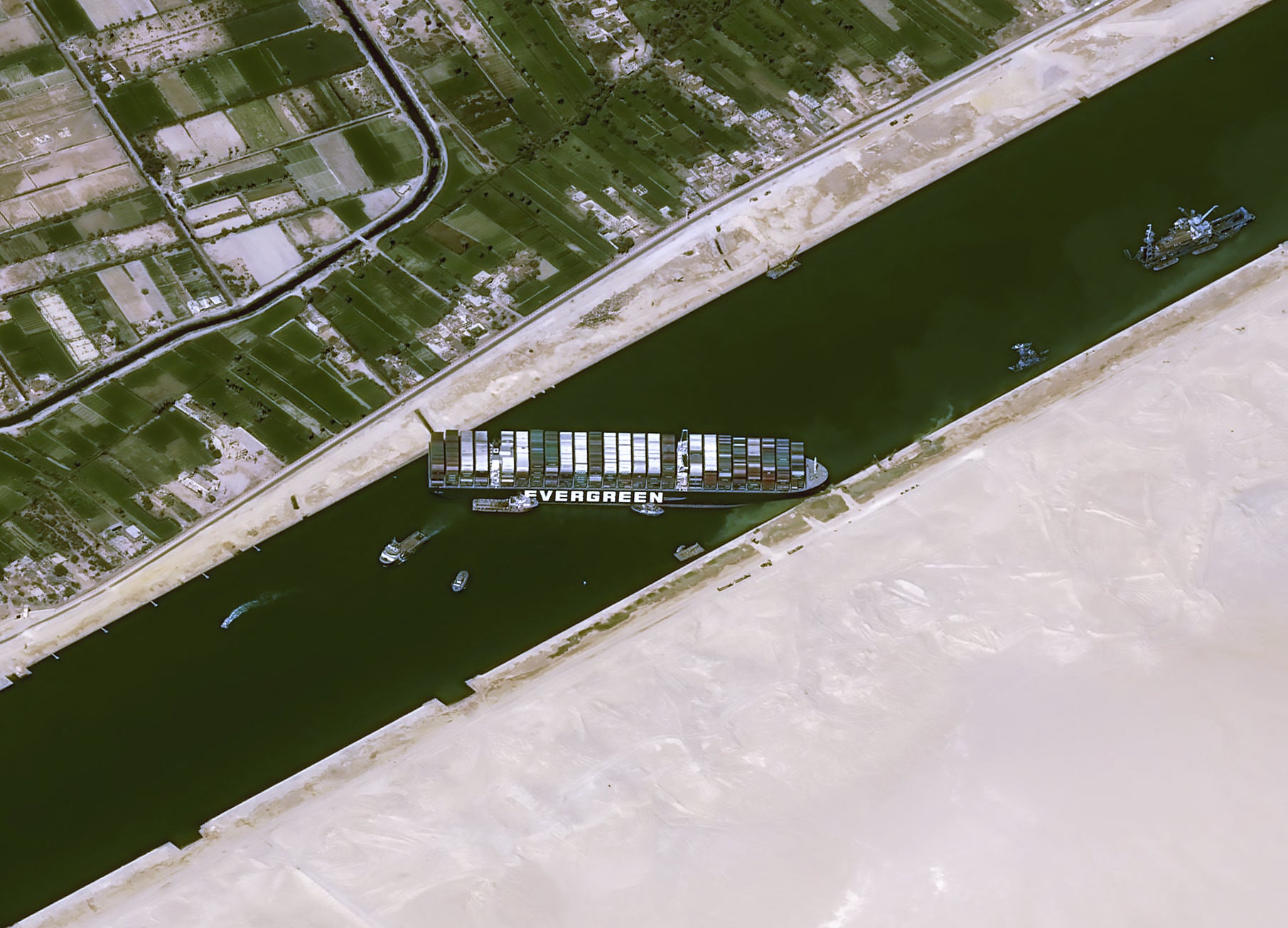Suez Canal ship is blocking $9.6bn of goods per day and could take weeks to move
Some 160 ships and vessels are queueing up on either side of the Suez Canal which provides passage to about one-tenth of the world’s trade
Suez Canal, the world’s most vital trade artery blocked by a 224,000-ton container, is reportedly holding up an estimate of $9.6bn (£7bn) worth of goods each day.
The canal’s westbound traffic comprises goods worth $5.1 bn a day, while the eastbound traffic ships goods and commodities worth $4.5 bn, BBC News reported citing data from shipping expert Lloyd’s List.
The problem began when MV Ever Given, a Panama-flagged vessel operated by Taiwanese company Evergreen and owned by Shoei Kisen Kaisha Ltd of Japan, became wedged sideways across the canal on Tuesday following strong winds.
According to experts, it could take “weeks” to re-float the massive container truck which weighs around 200,000 tonnes.
The 120-mile-long canal between the Red Sea and the Mediterranean separates Africa from the Middle East and Asia and is also the shortest route between Asia and Europe.
Read more:
- Suez canal news live: Shipping lane blocked by Ever Given vessel
- A brief history of the Suez Canal
- Everything we know about the ship grounded in the Suez Canal
- Built out of spite, Lebanon’s skinniest building now among most valued real estate
- Israel election exit polls suggest deadlock despite Netanyahu gaining most seats
Millions of tons of manufactured goods make their way from China and South Asia to Europe via the canal. Opened in 1869, the man-made waterway eased the global trade by offering a route that circumvented the need to go around Africa and has since been a key route for oil tankers going to and from the Middle East.

Due to the blockage, some 160 ships and vessels are queueing up either side of the vital canal which provides passage to about one-tenth of the world’s trade.
“For each day of delay my thought is, it will take two days to undo the delays,” Alan Baer, president of logistics provider OL USA was quoted as saying by BBC.
“Right now three days creates six days of ongoing delays. I’m not sure this is a perfect formula, but it will be close.”
“If it doesn’t get cleared quickly it will cause a lot of delay and people will have to start looking at shipping goods via the Cape of Good Hope,” Chris Evans, international supply chain expert at Colliers International, said.
Explaining how the choking of the global trade route will affect the prices of goods, Samir Madani, the co-founder of TankerTrackers told the Financial Times that “prolonged blockage would have severe consequences, from affecting oil prices and shipping rates to forcing container vessels to take the much longer route around Africa.”
The Japanese shipowner offered a written apology, as the turmoil caused by the blockage remained unresolved. “We are determined to keep on working hard to resolve this situation as soon as possible,” Shoei Kisen Kaisha Ltd. said. “We would like to apologise to all parties affected by this incident, including the ships travelling and planning to travel through Suez Canal.”
Additional reporting from the wires
Join our commenting forum
Join thought-provoking conversations, follow other Independent readers and see their replies
Comments
Bookmark popover
Removed from bookmarks